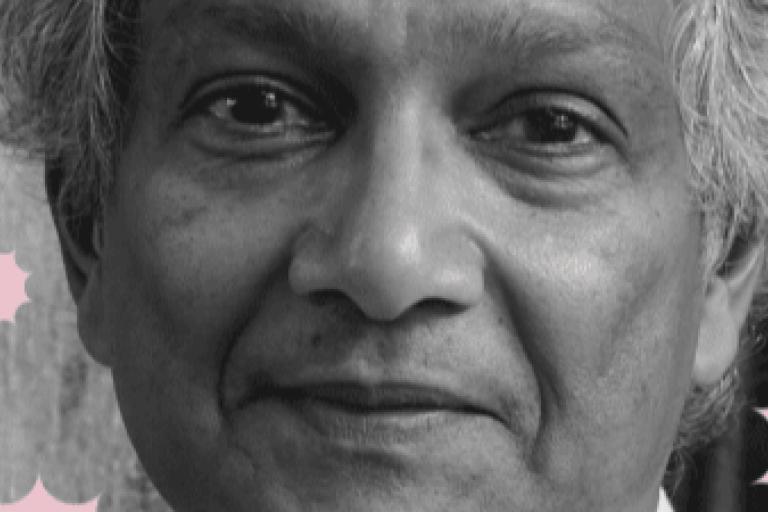
Romesh Gunesekera is internationally acclaimed for fiction that explores the key themes of our times — political, ecological, economic — through novels and stories of wide appeal. His fiction over the last forty years includes Reef, shortlisted for the Booker prize in 1994, and The Match, the ground-breaking cricket novel. He served as a judge for the International Booker Prize in 2024, and is a Fellow of the Royal Society of Literature. Originally from Sri Lanka, he has called Crouch End home for over 40 years.
How long have you resided in Haringey, and in which part of the borough do you live?
I moved to Haringey in 1978. I first lived near Highgate library and then in 1986 moved closer to the Hornsey library, in Crouch End, where I have lived ever since. I find connections in Haringey to all the places I have lived in before coming to London: Liverpool, the Philippines, Sri Lanka.
As a creative and activist, how has Haringey influenced you?
Living in Haringey has had a profound impact on my life as a writer. The literary magazines that published my early poems and stories were produced in Haringey (e.g. Ambit, Artrage). One of the first poetry competitions in which I won a prize was the Stanzas ’85 poetry competition run by the Crouch End Arts Festival in September 1985. It gave me much needed encouragement to keep writing.
What is your definition of a rebel?
Someone who offers an alternative to the established order. Any imaginative writer of fiction is potentially a rebel.
What’s the best careers advice you’ve received?
For me, imaginative writing is not a career. During the long period of trying to get published, there were plenty of suggestions to give up. I ignored the negative advice and kept trying to improve the writing.
When and where do you feel at your most powerful?
I am wary of creatives who feel powerful. The writing I value is exploratory, uncertain, sensitive and survives against the odds.
What would be a dream contribution to Haringey’s year as the London Borough of Culture?
I would like to help Haringey celebrate its literary heritage by shining a light on the many writers who have lived in the borough in the past, and by creating writing hubs in the bigger libraries (like Hornsey) where aspiring writers can find the space they need and resources to help them, including collections of literary magazines. Acclaimed writers like Andrea Levy, Carole Satyamurti, E A Markham, Taner Baybars have used Haringey’s libraries and even written in them. They, and others like them, could be a real inspiration for new writers who often start their journey in a library.
What’s the funniest thing you’ve heard or read about yourself that isn’t true?
Being enthusiastically complimented for writing successful books that are not mine and being congratulated for prizes I have not won.
What is your favourite hidden Haringey gem?
Parkland Walk. Although hardly a hidden a gem now, for a long time it was a less well known surprisingly green and refreshing walk.
Which other Haringey creative would you spotlight and why?
Although I have run writing workshops in local venues and schools, and collaborated with other writers on many wonderful projects, I mostly write in solitude. But I hear there are new writing circles springing up in Haringey, and open mic nights and literary events run by new groups like The Writing Shed that deserve a spotlight.
Want to get regular content like this straight to your inbox? Sign up for our London Borough of Culture newsletter for updates on cultural happenings right across our Rebel Borough, and information on how you can get involved as we gear up for our London Borough of Culture year.
Hear from other fascinating local creatives and activists in our Creative Spotlight series.
